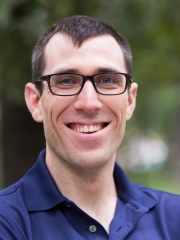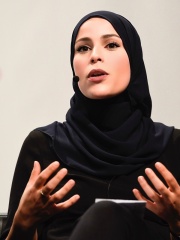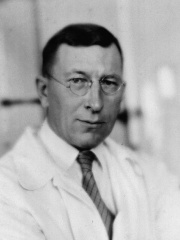
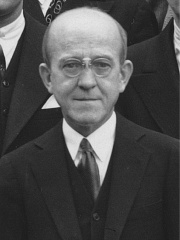
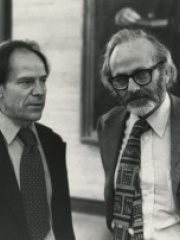
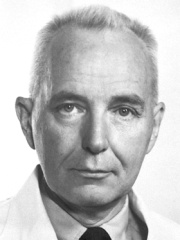
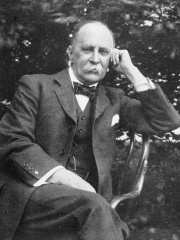
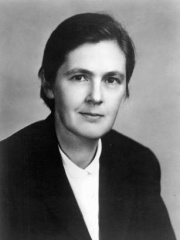

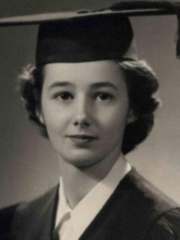
The Most Famous
PHYSICIANS from Canada
This page contains a list of the greatest Canadian Physicians. The pantheon dataset contains 726 Physicians, 12 of which were born in Canada. This makes Canada the birth place of the 17th most number of Physicians behind Hungary, and Czechia.
Top 10
The following people are considered by Pantheon to be the top 10 most legendary Canadian Physicians of all time. This list of famous Canadian Physicians is sorted by HPI (Historical Popularity Index), a metric that aggregates information on a biography's online popularity. Visit the rankings page to view the entire list of Canadian Physicians.

1. Frederick Banting (1891 - 1941)
With an HPI of 71.11, Frederick Banting is the most famous Canadian Physician. His biography has been translated into 73 different languages on wikipedia.
Sir Frederick Grant Banting (; November 14, 1891 – February 21, 1941) was a Canadian pharmacologist, orthopedist, and field surgeon. For his co-discovery of insulin and its therapeutic potential, Banting was awarded the Nobel Prize in Physiology or Medicine with John Macleod. Banting and his student, Charles Best, isolated insulin at the University of Toronto in the lab of Scottish physiologist John Macleod. When he and Macleod received the 1923 Nobel Prize in Physiology or Medicine, Banting shared the honours and award money with Best. That same year, the Government of Canada granted Banting a lifetime annuity to continue his work. He is the youngest Nobel laureate for Physiology/Medicine, at 32.

2. Oswald Avery (1877 - 1955)
With an HPI of 67.58, Oswald Avery is the 2nd most famous Canadian Physician. His biography has been translated into 35 different languages.
Oswald Theodore Avery Jr. (October 21, 1877 – February 20, 1955) was a Canadian-American physician and medical researcher. The major part of his career was spent at the Rockefeller Hospital in New York City. Avery was one of the first molecular biologists and a pioneer in immunochemistry, but he is best known for the experiment (published in 1944 with his co-workers Colin MacLeod and Maclyn McCarty) that isolated DNA as the material of which genes and chromosomes are made. The Nobel laureate Arne Tiselius said that Avery was the most deserving scientist not to receive the Nobel Prize for his work, though he was nominated for the award throughout the 1930s, 1940s, and 1950s. The lunar crater Avery was named in his honor.

3. David H. Hubel (1926 - 2013)
With an HPI of 67.03, David H. Hubel is the 3rd most famous Canadian Physician. His biography has been translated into 45 different languages.
David Hunter Hubel (February 27, 1926 – September 22, 2013) was an American Canadian neurophysiologist noted for his studies of the structure and function of the visual cortex. He was co-recipient with Torsten Wiesel of the 1981 Nobel Prize in Physiology or Medicine (shared with Roger W. Sperry), for their discoveries concerning information processing in the visual system. For much of his career, Hubel worked as the Professor of Neurobiology at Johns Hopkins University and Harvard Medical School. In 1978, Hubel and Wiesel were awarded the Louisa Gross Horwitz Prize from Columbia University. In 1983, Hubel received the Golden Plate Award of the American Academy of Achievement.

4. Charles Brenton Huggins (1901 - 1997)
With an HPI of 66.89, Charles Brenton Huggins is the 4th most famous Canadian Physician. His biography has been translated into 49 different languages.
Charles Brenton Huggins (September 22, 1901 – January 12, 1997) was a Canadian-American surgeon and physiologist known for his work on prostate function, prostate cancer, and breast cancer. Born in Halifax in 1901, Huggins moved to the United States for medical school. He was one of the founding staff members of the University of Chicago Medical School, where he remained for the duration of his professional research career. Huggins's work on how sex hormones influence prostate function ultimately led to his discovery of hormone therapies to treat prostate cancer. For this finding, he was awarded the 1966 Nobel Prize for Physiology or Medicine. In addition to his work on prostate cancer, Huggins explored the relationship between hormones and breast cancer, developed an animal model for breast cancer, and developed chromogenic substrates that are widely used for biochemical analyses. Huggins continued to perform research into his 90s; he died in Chicago in 1997.
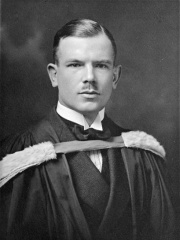
5. Norman Bethune (1890 - 1939)
With an HPI of 63.71, Norman Bethune is the 5th most famous Canadian Physician. His biography has been translated into 28 different languages.
Henry Norman Bethune (; March 4, 1890 – November 12, 1939; Chinese: 白求恩) was a Canadian thoracic surgeon, early advocate of socialized medicine, and member of the Communist Party of Canada. Bethune came to international prominence first for his service as a frontline trauma surgeon supporting the Republican government during the Spanish Civil War, and later supporting the Chinese Communist Party's (CCP) Eighth Route Army during the Second Sino-Japanese War. Bethune helped bring modern medicine to rural China, treating both sick villagers and wounded soldiers. Bethune's service to the CCP earned him the respect of Mao Zedong, who wrote a eulogy dedicated to Bethune when he died in 1939. His name is honored in China to this day.

6. William Osler (1849 - 1919)
With an HPI of 63.22, William Osler is the 6th most famous Canadian Physician. His biography has been translated into 30 different languages.
Sir William Osler, 1st Baronet, (; July 12, 1849 – December 29, 1919) was a Canadian physician and one of the "Big Four" founding professors of Johns Hopkins Hospital. Osler created the first residency program for specialty training of physicians. He has frequently been described as the Father of Modern Medicine and one of the "greatest diagnosticians ever to wield a stethoscope". In addition to being a physician he was a bibliophile, historian, author, and renowned practical joker. He was passionate about medical libraries and medical history, having founded the History of Medicine Society (formally "section"), at the Royal Society of Medicine, London. He was also instrumental in founding the Medical Library Association of Great Britain and Ireland, and the (North American) Association of Medical Librarians (later the Medical Library Association) along with three other people, including Margaret Charlton, the medical librarian of his alma mater, McGill University. He left his own large history of medicine library to McGill, where it became the Osler Library.

7. Frances Oldham Kelsey (1914 - 2015)
With an HPI of 61.16, Frances Oldham Kelsey is the 7th most famous Canadian Physician. Her biography has been translated into 33 different languages.
Frances Kathleen Oldham Kelsey (née Oldham; July 24, 1914 – August 7, 2015) was a Canadian-American pharmacologist and physician. As a reviewer for the U.S. Food and Drug Administration (FDA), she refused to authorize thalidomide for market because she had concerns about the lack of evidence regarding the drug's safety. Her concerns proved to be justified when it was shown that thalidomide caused serious birth defects. Kelsey's career intersected with the passage of laws strengthening FDA oversight of pharmaceuticals. Kelsey was the second woman to receive the President's Award for Distinguished Federal Civilian Service, awarded to her by John F. Kennedy in 1962.

8. Édouard Gagnon (1918 - 2007)
With an HPI of 56.02, Édouard Gagnon is the 8th most famous Canadian Physician. His biography has been translated into 17 different languages.
Édouard Gagnon, PSS, OC (15 January 1918 – 25 August 2007) was a Canadian Roman Catholic cardinal and President of the Pontifical Council for the Family for 7 years, from 1983 to 1990. He became a cardinal on 25 May 1985.

9. Lucille Teasdale-Corti (1929 - 1996)
With an HPI of 54.46, Lucille Teasdale-Corti is the 9th most famous Canadian Physician. Her biography has been translated into 18 different languages.
Lucille Teasdale-Corti (January 30, 1929 – August 1, 1996) was a Canadian physician and pediatric surgeon, who worked in Uganda from 1961 until her death in 1996. With her husband she co-founded a university hospital in the north of Uganda.
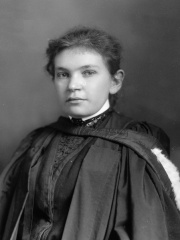
10. Maude Abbott (1868 - 1940)
With an HPI of 48.86, Maude Abbott is the 10th most famous Canadian Physician. Her biography has been translated into 16 different languages.
Maude Elizabeth Seymour Abbott (March 18, 1868 – September 2, 1940) was a Canadian physician, among Canada's earliest female medical graduates, and an internationally known expert on congenital heart disease. She was one of the first women to obtain a BA from McGill University.
People
Pantheon has 12 people classified as Canadian physicians born between 1849 and 1989. Of these 12, 2 (16.67%) of them are still alive today. The most famous living Canadian physicians include James Heilman, and Alaa Murabit. The most famous deceased Canadian physicians include Frederick Banting, Oswald Avery, and David H. Hubel.
Living Canadian Physicians
Go to all RankingsDeceased Canadian Physicians
Go to all RankingsFrederick Banting
1891 - 1941
HPI: 71.11
Oswald Avery
1877 - 1955
HPI: 67.58
David H. Hubel
1926 - 2013
HPI: 67.03
Charles Brenton Huggins
1901 - 1997
HPI: 66.89
Norman Bethune
1890 - 1939
HPI: 63.71
William Osler
1849 - 1919
HPI: 63.22
Frances Oldham Kelsey
1914 - 2015
HPI: 61.16
Édouard Gagnon
1918 - 2007
HPI: 56.02
Lucille Teasdale-Corti
1929 - 1996
HPI: 54.46
Maude Abbott
1868 - 1940
HPI: 48.86
Overlapping Lives
Which Physicians were alive at the same time? This visualization shows the lifespans of the 10 most globally memorable Physicians since 1700.

